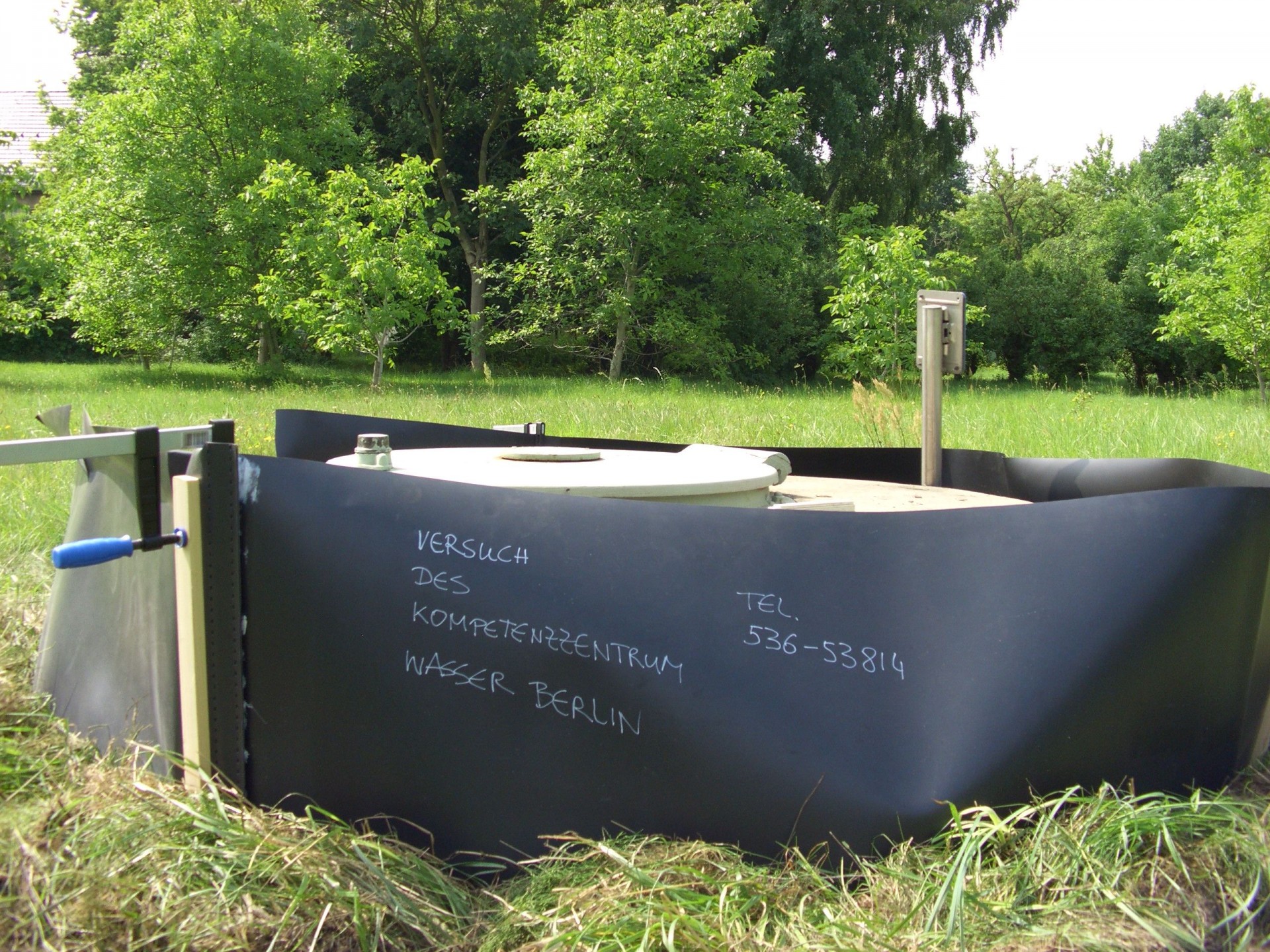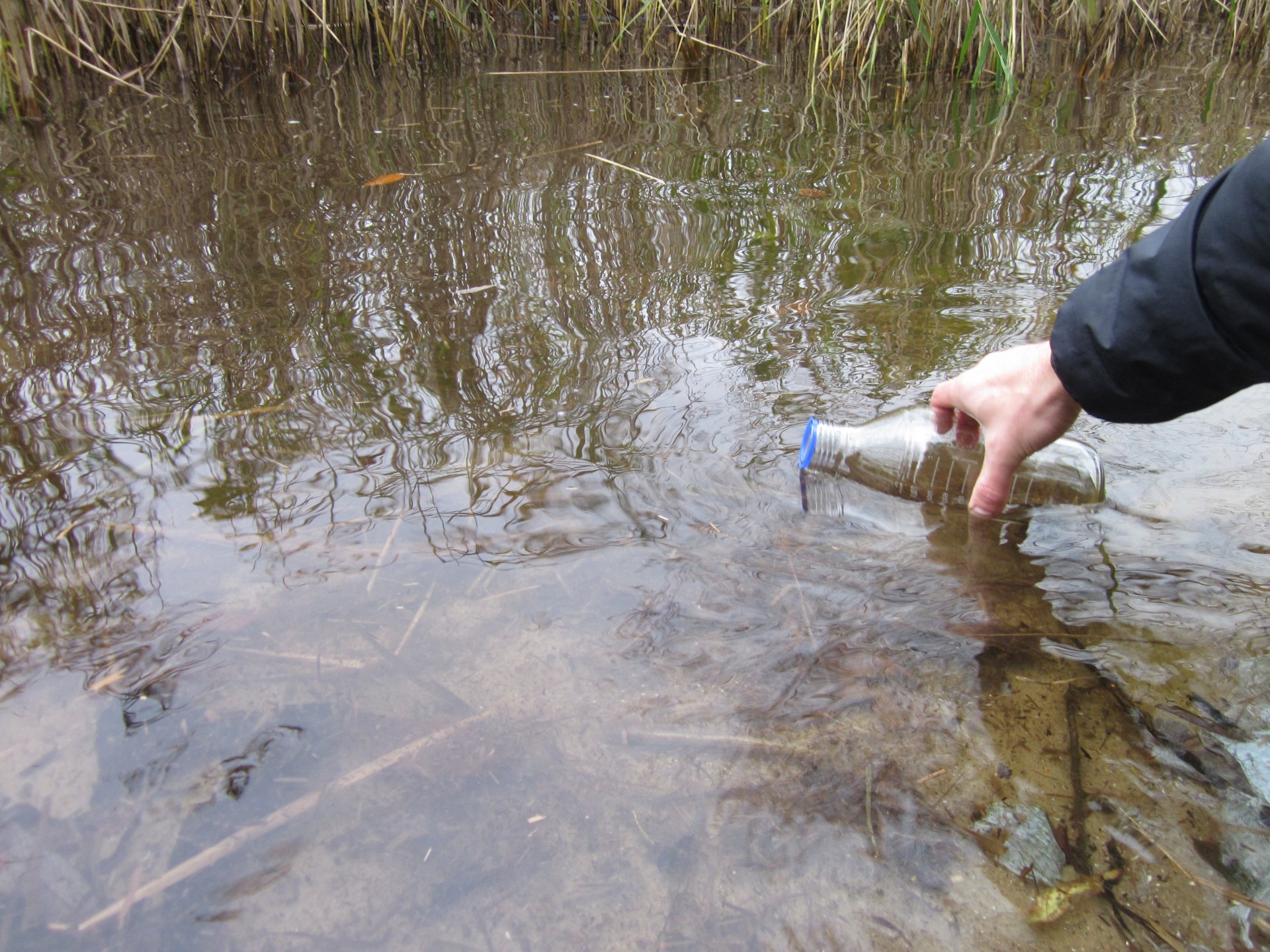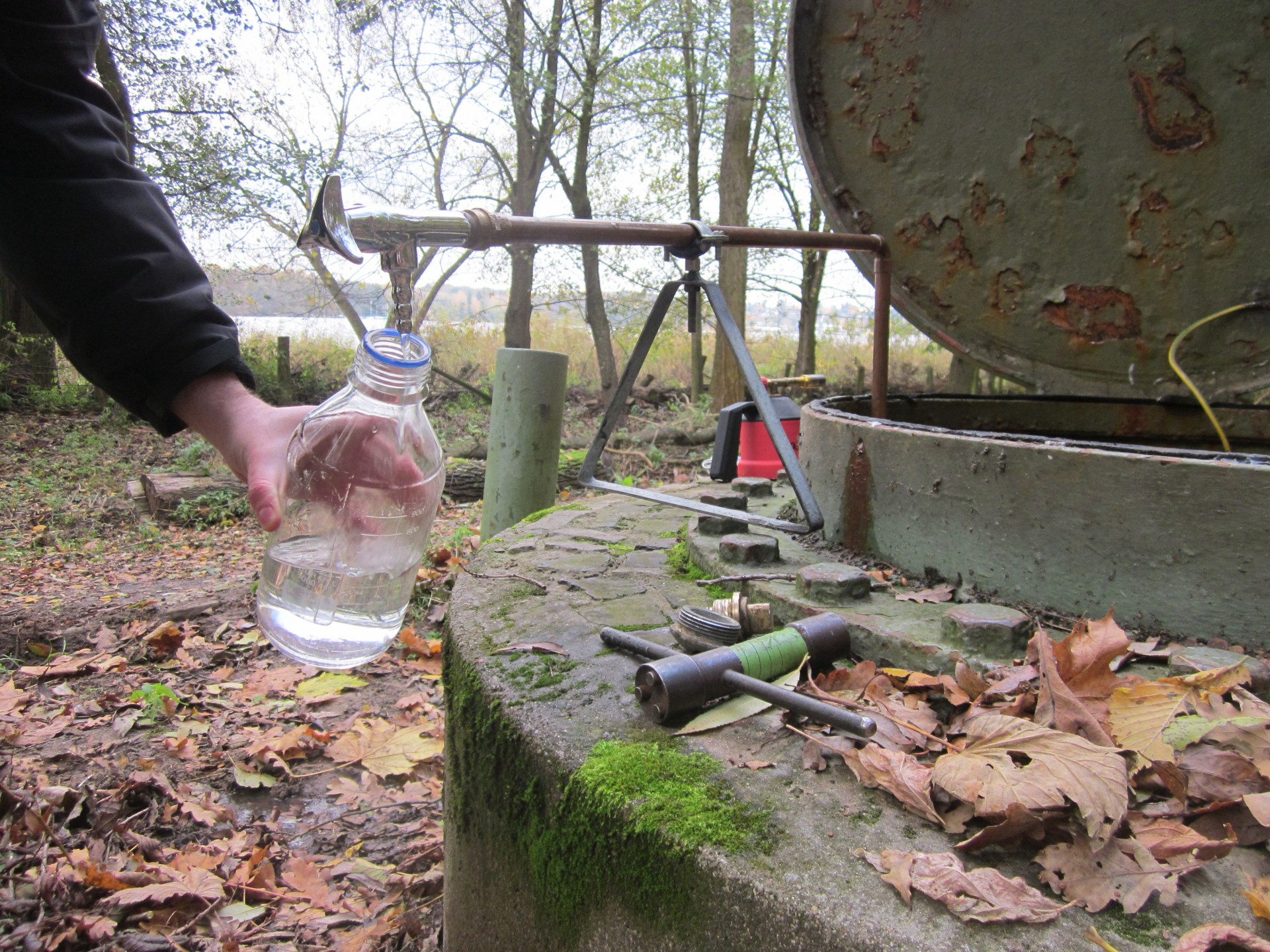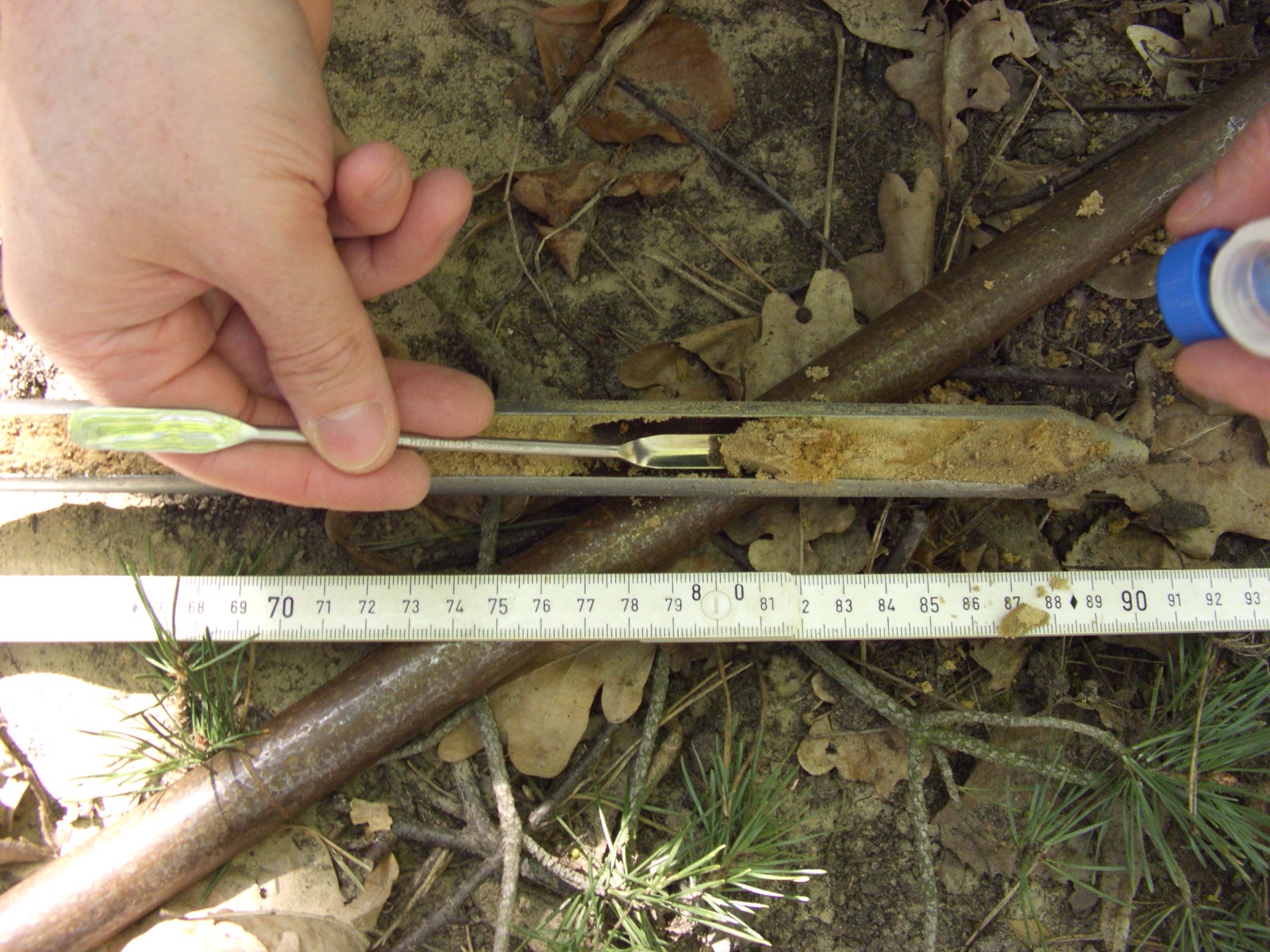Risk Analysis of Microbial Contamination of Drinking Water Wells
A special feature of Berlin’s drinking water production system is the absence of disinfection measures in routine operation. Declared goal of the BWB is to maintain this natural treatment scheme without disinfection. The protection of groundwater abstracted for drinking water production against microbial contamination relies on two barriers – i) the retention capacity of the sediment between infiltration point and well and ii) the protective equipment of the well (clay sealing, sealed well head).
In connection with prolonged periods of repeated heavy rain events, as in the summer of 2011, a potential failure of the natural or constructive barrier systems has been observed leading to the detection of hygienically relevant microorganisms in the raw water of drinking water wells. However, neither bank filtration as semi-natural pre-treatment step nor the effectiveness of the constructive barriers have been studied systematically yet with regard to expected changing climatic conditions, i.e. increasing frequency of extreme rainfall. Thus, central issues of the project RIKO-1 to investigate are:
Actual occurrence and concentrations of hygienic relevant microorganisms in different contamination sources (surface water, precipitation, groundwater)
Confirmation of the functioning of bank filtration under extreme conditions (floods, heavy rainfalls)
Imperviousness of construction towards surface- or groundwater depending on the construction type and hydraulic pathways in the well surrounding.
Systematic microbiological field investigations (saturated and unsaturated zone, during and after heavy rain events, between the infiltration point and selected well sites) applying biomolecular methods, tracer tests and borehole geophysical logging aim at detecting and monitoring the sources, entry paths and concentrations of microbiological contaminants (Coliform bacteria, Enterococci, Clostridia). This serves as a reliable basis to develop directly applicable recommendations for microbiological monitoring and avoidance strategies with regard to extreme weather conditions to ensure the continuation of the no-disinfection strategy of BWB.
The results derived for Berlin, i.e. the identification of weak points at well construction, critical hydraulic gradients and recommendations for a monitoring strategy to enable early warning and immediate response will be transferable to other sites. In the long-term, they add to the necessary climate change adaptation strategies.
Block error: "Call to a member function resize() on null" in block type: "references"

- Tracerversuch zum Nachweis von Undichtigkeiten am Beispiel eines Vertikalfilterbrunnens des Wasserwerks Jungfernheide (Berlin).
- RIKO-1 Synthesebericht
- RIKO-1 Mikrobiologische Methoden: Stand der Technik
- RIKO-1 RISIKOANALYSE DES EINTRAGS MIKROBIELLER KONTAMINATION IN TRINKWASSERBRUNNEN UND ABLEITUNG VON VERMEIDUNGSSTRATEGIEN – PHASE 1





